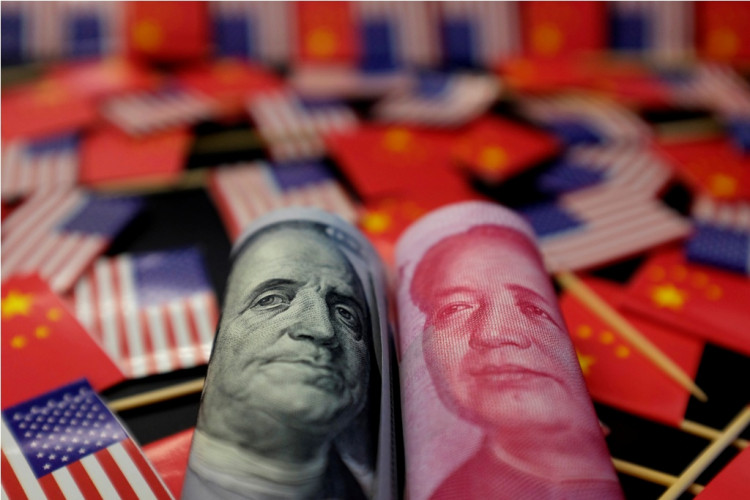The Trump administration appears to be more inclined to intentionally weaken the dollar in an effort to boost the flagging U.S. economy while improving president Donald Trump's chances at re-election in 2020.
Trump and his finance officials recently made comments indicating the administration might be considering an intervention, believes Ben Randol, G-10 foreign exchange strategist at Bank of America Merrill Lynch.
"The dollar is about 10% or more overvalued relative to its long term equilibrium," according to Randol. "The Treasury is beginning to sight those (IMF) studies as well. We think that's an important sign that the administration is looking at the dollar and its long term competitiveness and that could be an inspiration or serve as a reason why they would want to intervene."
Randol, however, believes it's not likely the administration will go as far as to intentionally weaken the dollar. That's because G20 countries have agreed not to conduct solo interventions unless there is extreme currency volatility.
"Unless they really want to jettison decades of precedent, they can only intervene in the pursuit of stabilizing the dollar and not come out and say we're targeting the level of the exchange rate. That won't fly and by the way, they don't have the firepower to back it up," noted Randol.
Randol said the risk of the U.S. weakening the dollar shouldn't be ignored, but he expects Trump to talk more about it rather than act on it.
"China and Europe playing big currency manipulation game and pumping money into their system in order to compete with the USA," tweeted Trump recently.
"We should MATCH, or continue being the dummies who sit back and politely watch as other countries continue to play their games -- as they have for many years!"
Other analysts share the same viewpoint and believe the chances of the administration intentionally intervening to weaken the dollar are quite slim. What they see is the Trump administration verbally abandoning the long-standing strong dollar policy to level what it sees is an uneven playing field with some of its trading partners.
Goldman Sachs and Bank of America Merrill Lynch last week said intervention risks are low but rising. Goldman analysts said their views about currency policy "comes against a backdrop where the "President has surprised investors on trade policy issues, which has created a perception that 'anything is possible.'"
"While this would cut against the norms of recent decades, developed market central banks have recently used their balance sheets more actively, and FX intervention is akin to unconventional monetary policy, at least in an operational sense," said Goldman analysts.
On the other hand, a global investment management firm, PIMCO, sees Trump going ahead and weakening the dollar.
Trump and other administration officials have been more open about their interest in a weaker dollar, implying the U.S. could intervene in the market, according to Joachim Fels, PIMCO managing director, and global economic advisor.
"Following a pause since early 2018, the cold currency war that has been waging between the world's major trading blocs for more than five years has been flaring up again," said Fels.
"Moreover, even an escalation to a full-blown currency war with direct intervention by the U.S. and other major governments/central banks to weaken their currencies, while not a near-term probability, can no longer be ruled out," wrote Fels to company investors.






